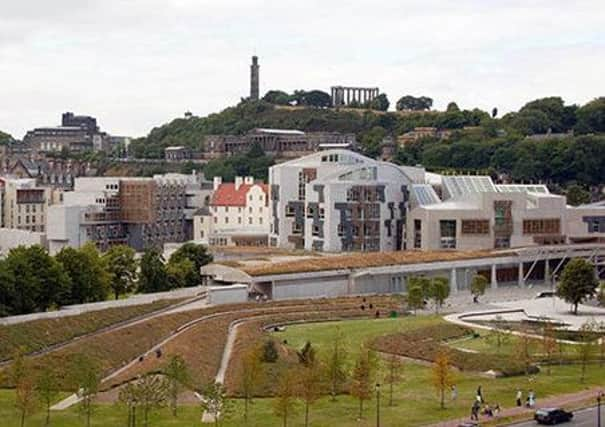Scottish Parliament set to pass new Scots tax


MSPs are to take over control of stamp duty when the Land and Buildings Transactions Tax (LBTT) is passed by a vote in Parliament tomorrow.
It means MSPs will set and collect a proportion of the revenue they spend for the first time. Holyrood does have the power to vary income tax by 3 pence - the so called tartan tax - but this has never been used.
Advertisement
Hide AdAdvertisement
Hide AdMr Swinney said: “With Parliament’s approval the passing of this Bill will be a huge milestone for Scotland – it will enable us to set and collect taxes in a more cost effective and fairer way than the UK Government.
“This Bill will give us the opportunity to better support first time buyers trying to get onto the housing ladder or families buying bigger homes that better suit their needs.
“It is this Government’s belief that tax should be proportionate. That means taxpayers should have certainty about what they should pay - it should be convenient and it should be efficient.”
Further tax-raising powers
The LBTT is part of a range of new tax-raising powers being handed to Holyrood as part of the Scotland Act and will be introduced in 2015. MSPs will also have beefed up controls over income tax as part of the change, which will effectively see this cut by 10 pence and Holyrood responsible for raising it back up to the required level in line with need.
Mr Swinney added: “It is my vision that Scotland should have a modern and efficient tax system , grounded on solid foundations and delivering sustainable economic growth.
“The changes we are making show that where we have the powers we are able to design a system better suited to Scotland’s interests. Only in an independent Scotland, where Scotland has full control over all economic levers, will the interests of Scotland be best served.”
SEE ALSO: